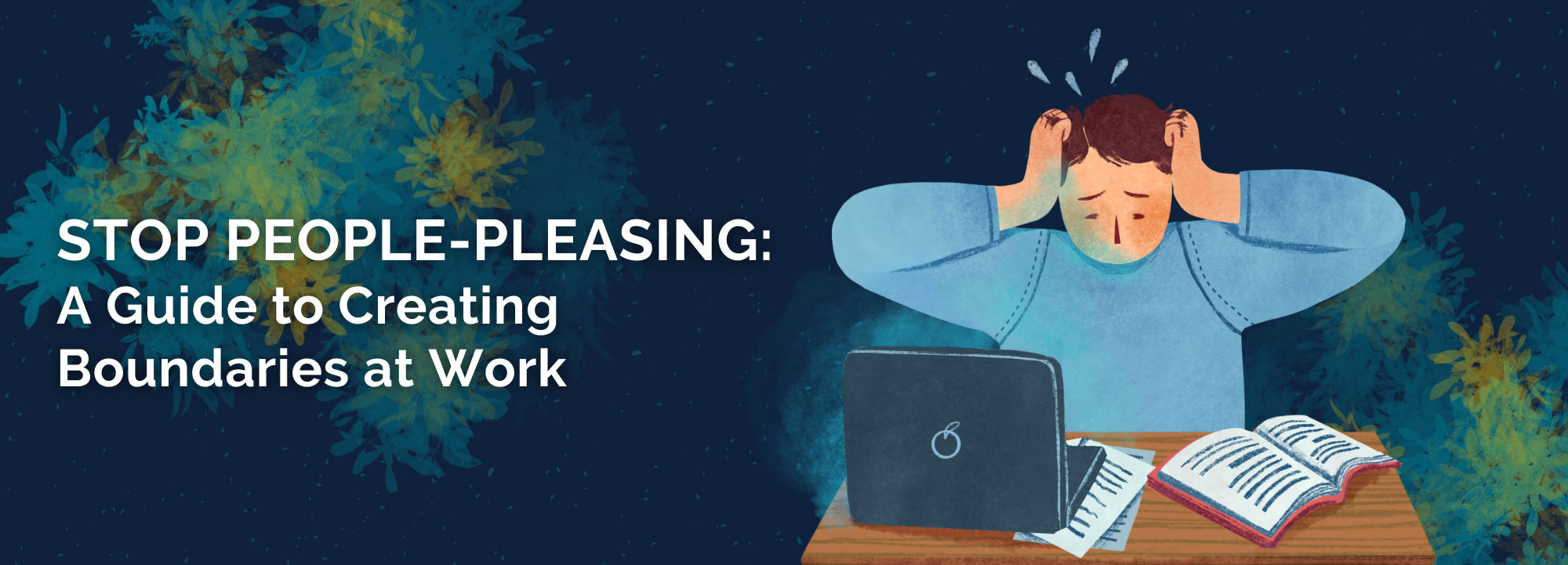
Do you have a poor opinion of yourself? Do you need others to like you? Is it hard for you to say “no”? Do you apologise often even if you’re not at fault?
If you happen to agree with any or all of the above, you may be a people-pleaser: you probably go above and beyond to please others, but end up feeling miserable for neglecting your own needs and emotions.
This attitude cannot be excused as simply showing kindness and compassion. There is more to this behaviour than meets the eye as it can really harm you, especially at work.
So, are you just being nice, or are you a people-pleaser? Here are some helpful indicators for the latter:
confidence depends on them.
How Does People-Pleasing Hurt You?
Even though you may mean well, being a people-pleaser can be quite damaging. Here’s how:
Stop People-Pleasing: Some Helpful Tips
Build Self-Awareness
Be aware of your own needs. Make yourself a priority by understanding what you want in life and what makes you happy, and do this before trying to accommodate others. Putting yourself first is not selfish: after all, your own happiness and well-being depend on you!
Learn to Say “No”
According to social psychologist Susan Newman, saying “No” is a learned skill. Start acquiring this skill by first learning to delay the “Yes”. For instance, you can say “Let me check first”, or “I’ll get back to you on that” instead of agreeing to something right away. From there, master the skill of saying “No” or disagreeing when necessary. Remember that you always have a choice.
Hold Space for Yourself
Take stock of what’s going on with your life, work, body and mind. Take time to reflect and listen to your inner voice. Be open to all your emotions and acknowledge them. When you fully understand yourself, it is time to practice self-care. Treat yourself with kindness and compassion. You deserve it!
Recognise Your Limits
Set healthy boundaries that allow you to be true to yourself. List the things that make you feel uncomfortable or used in the workplace. Then work through them and don’t allow it when someone tries to take advantage of your time and energy. Be assertive and stand up for yourself.
The Bottom Line
Speaking your mind may be hard when the people-pleasing behaviour is deeply ingrained in you. But remember that honesty is a virtue, so be honest about how you feel. It’s worth noting that speaking your mind at the workplace can be liberating. Emit positive energy at work, and eventually creativity, productivity, and efficient work performance will follow.
Have you ever felt lost, or wondered what life would be like if you had chosen a different field of study, or pursued a different passion? Stella Teoh Sim Chee went through this, but instead of continuing on the not-so-right path, Stella decided to wipe the slate clean and start afresh.
Let me start with a little introduction to my family. I grew up in a big and lovely family with around 130 cousins. My great-grandmother had 12 children, so you can understand where this big number comes from!
Faculty of Business and Management (FBM) Dean Dr Goi Mei Teh joined OUM in 2019 and has almost 20 years of experience in academia, with specialisations in branding, consumer behaviour, service marketing, and retailing. Contact reached out to Dr Goi to find out more about her role and what’s in store for FBM.
If you’re old enough, you probably remember a time when your Ringgit used to go further than it does these days. The reason for this is something we all know: inflation. But what exactly is inflation?
Do you have a poor opinion of yourself? Do you need others to like you? Is it hard for you to say “no”? Do you apologise often even if you’re not at fault?